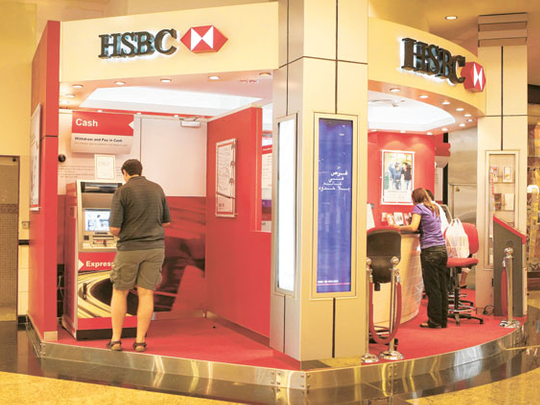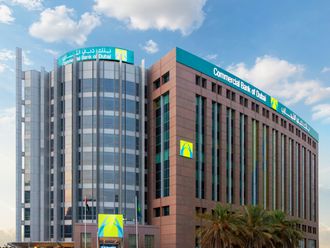
Dubai: HSBC Amanah provides a full range of Islamic financial services to the retail, corporate and institutional customers in the Middle East, Asia and the UK.
It has a team of dedicated Islamic banking professionals in most major financial centres such as New York, London, Riyadh, Dubai, Hong Kong, Malaysia and Singapore. With the size of the Muslim population expected to reach 2.2 billion by 2030, or 26 per cent of the world population, HSBC Amanah expects huge growth in their target markets.
In a recent interview with Gulf News, Razi Fakih, Deputy CEO of Global HSBC Amanah, said that about 80 per cent of the world's Muslims live in Asia and the Middle East. Given that these regions are set to grow faster than the world average, Islamic finance is thus likely to continue growing faster than conventional banking.
Gulf News: What are your expectations for the overall growth of Islamic banking, especially in the region?
Razi Fakih: The Islamic banking industry has been growing at double-digit compounded annual growth rates over the past few years. Markets such as Malaysia, Turkey and the GCC (Gulf Cooperation Council) countries in particular, have been beneficiaries of the strong growth. Growth is likely to extend beyond the traditional markets of Saudi Arabia and the UAE as more countries adopt regulations that are friendly to Islamic finance.
Looking at the recent trends, do you expect to see a long term surge in sukuk issuance?
Sukuk sales have definitely rebounded. With a healthy pipeline of mandates, we expect the number of issues HSBC Amanah manages in 2011 to beat last year's and our record year in 2007. The market has been incredibly active. At one point in May 2011, three sukuk were launched in one week in Mena alone. HSBC Middle East's sukuk was a landmark issue for various reasons. Besides being the first benchmark sukuk by an international bank, it uses a new structure which paves the way for other financial institutions to issue sukuk.
How do you assess HSBC Amanah's performance in the region in recent years?
We are the leader in Islamic debt capital markets and we intend to keep this position. For GCC sukuk, we are the No 1 underwriter with a 40 per cent market share. HSBC Amanah has also witnessed significant growth in our commercial banking business in the Middle East this year. Customers are increasingly turning to Islamic finance because the proposition is now on par with conventional banking. Our retail banking and wealth management business continues to do well after the launch of HSBC's new international Islamic banking. HSBC Amanah's fund management business is also doing well. With the largest range of Islamic equity funds globally, we are a leading international Islamic asset manager.
What will be the role of Islamic markets and institutions in global trade and trade finance?
HSBC's recent Trade Forecast report sees global trade jumping 73 per cent to $49 trillion by 2025, with Malaysia, Indonesia and the UAE emerging as major trade players. Muslim countries such as Malaysia, Indonesia, the UAE, Saudi Arabia and Egypt are expected to account for 5 per cent of the world's trade by 2025, with Egypt likely to play a larger role in Islamic trade finance.
Emerging and Islamic markets are expected to lead growth in global trade volumes over the next 15 years as non-traditional markets in Asia and the Middle East drive demand. To realise the full potential, however, key concerns raised by exporters and importers through HSBC's Trade Confidence index need to be addressed.
What is your assessment Islamic banking in the region in the post Arab Spring?
Post the Arab Spring, countries in the Middle East will be looking to rebuild themselves. Key projects will be infrastructure and basic social facilities such as roads, hospitals, power plants and schools so that people can enjoy a minimum standard of living.
To finance these projects, governments and private sector developers should consider Islamic financing since Islamic banks have stronger balance sheets and are better able to fund these multi-billion dollar projects at a time when the liquidity pool is shrinking given tightening credit lines and higher regulatory requirements for banks.
For many Middle Eastern countries and corporates, sukuk has become a mainstream source of financing. The outlook for sukuk is strong because there is high liquidity and more importantly, it has performed really well in the after-market.










